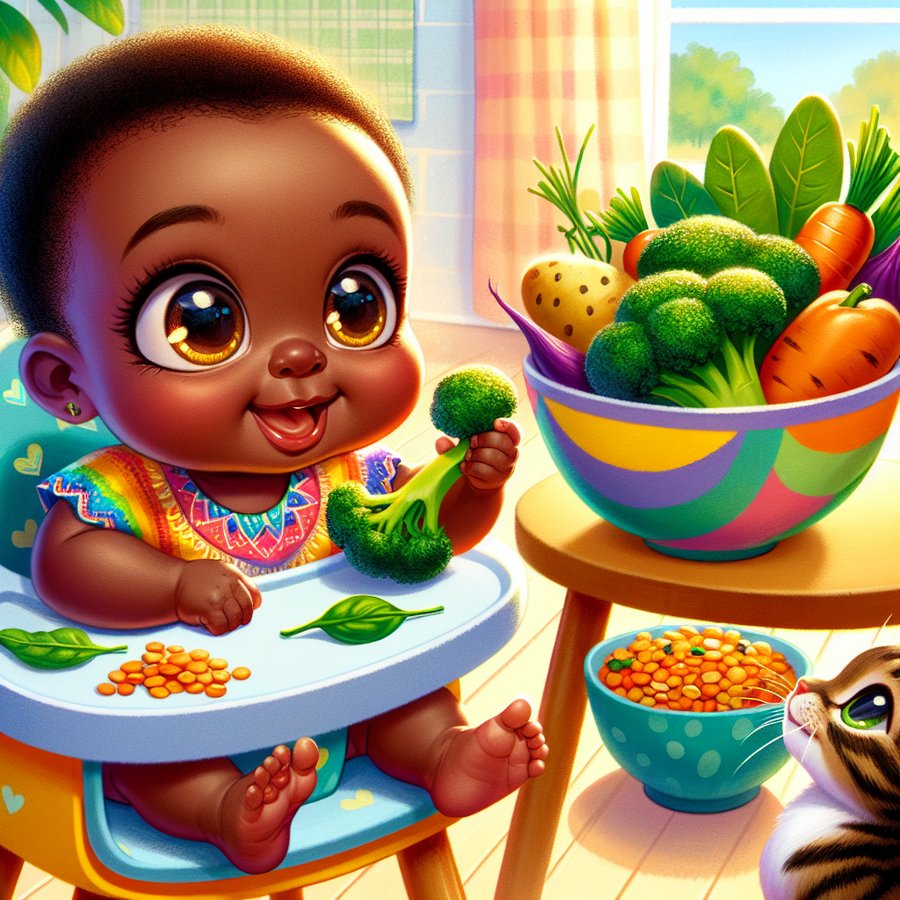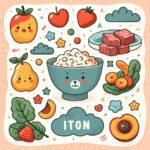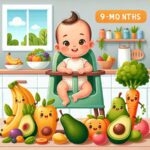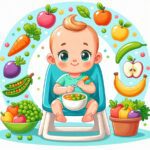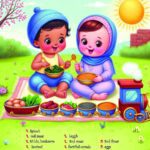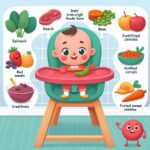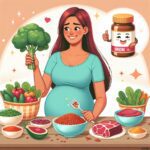Introducing iron-rich vegetarian recipes to 9-month-old babies is a pivotal step in ensuring they receive the necessary nutrients for optimal growth and development. Iron plays a crucial role in brain development and is essential for creating healthy blood cells. However, finding vegetarian sources of iron that are suitable and enjoyable for babies can be a challenge. This guide aims to provide parents with creative, nutritious, and baby-approved vegetarian recipes that are rich in iron.
Understanding the Importance of Iron in a Baby’s Diet
Iron deficiency can lead to anemia, which is unfortunately common among infants and toddlers. This condition can affect a baby’s overall development, causing fatigue, weakness, and delayed growth and cognitive development. Therefore, incorporating iron-rich foods into your baby’s diet from an early age is vital, especially for those on a vegetarian diet. According to the American Academy of Pediatrics, infants between 7 and 12 months require 11 mg of iron per day.
Vegetarian diets can provide ample iron, but it’s important to note that the iron from plant-based sources, known as non-heme iron, is not as easily absorbed by the body as the heme iron found in animal products. To enhance absorption, pair iron-rich foods with vitamin C-rich foods in meals. For more information on balancing your baby’s diet, consider reading about balancing solid food and milk intake for 9-month-old babies.
Iron-Rich Vegetarian Recipes for 9-Month-Old Babies
Introducing varied and nutritious meals is key to ensuring your baby receives enough iron. Here are several iron-rich vegetarian recipes designed to be both delicious and nutritious for your 9-month-old:
- Lentil and Sweet Potato Mash: Lentils are an excellent source of iron. Cooked and mashed with sweet potato, this recipe also provides vitamin C, which aids in iron absorption.
- Iron-Fortified Cereal with Mashed Avocado: Iron-fortified baby cereals mixed with avocado can offer a creamy texture that babies love, alongside a healthy dose of iron and beneficial fats.
- Spinach and Ricotta Cheese Patties: Spinach is a well-known source of iron, and when combined with ricotta cheese, it provides a soft patty that’s easy for babies to eat.
When creating meals, remember to check for potential allergens and consult with a pediatrician to ensure these recipes meet your baby’s health needs. For more detailed recipes and preparation tips, visit our page on iron-rich vegetarian recipes for 9-month-old babies.
Maximizing Iron Absorption from Vegetarian Sources
To maximize the absorption of non-heme iron in your baby’s diet, pair iron-rich foods with those high in vitamin C. For instance, serving a spinach and orange salad or adding tomato sauce to lentil dishes can enhance iron absorption. Moreover, avoiding tea and coffee during meals is crucial, as they contain polyphenols that can inhibit iron absorption.
Understanding the intricacies of a vegetarian diet for babies, including the need for vitamin C to aid iron absorption, is essential for parents. For further reading on this topic, explore the article on combating iron deficiency without meat in a toddler’s diet. This knowledge will empower you to make informed decisions about your baby’s nutritional needs.
By introducing a variety of iron-rich vegetarian foods and ensuring proper nutrient pairings, you can confidently provide your 9-month-old with the nutrients they need for healthy development. Remember to introduce new foods gradually and pay attention to your baby’s cues. With a little creativity and planning, your baby’s vegetarian diet can be both nutritious and satisfying, laying the foundation for a lifetime of healthy eating habits.

